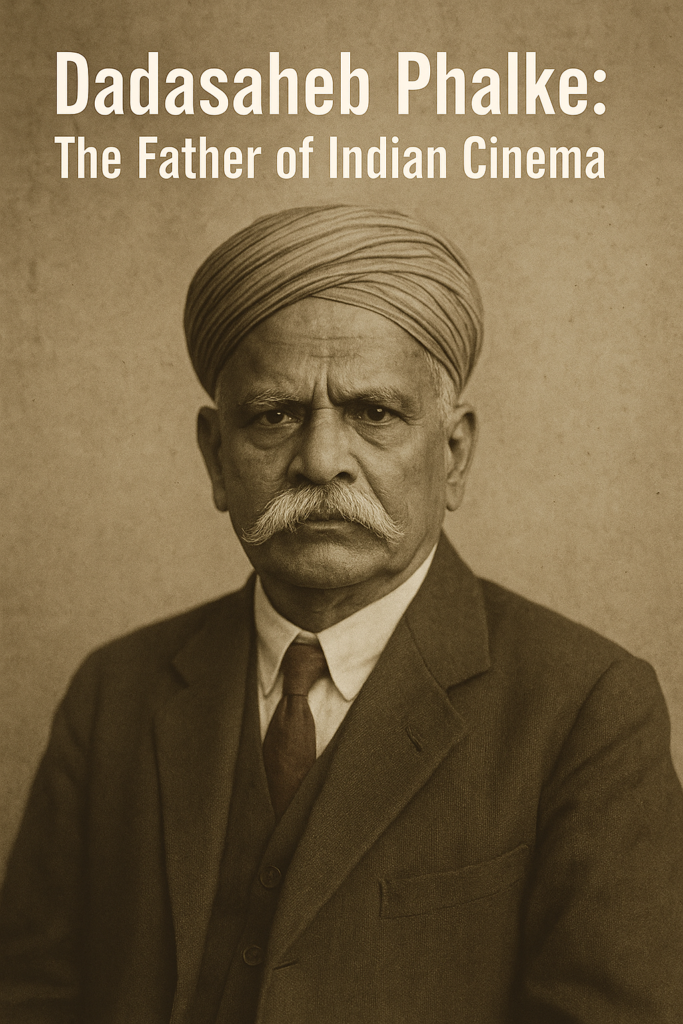When the reels rolled for the first time in India, it was Dadasaheb Phalke who turned dreams into moving pictures.

Dhundiraj Govind Phalke, popularly known as Dadasaheb Phalke, is remembered as the pioneering force behind Indian cinema. Born on April 30, 1870, in Trimbak, Maharashtra, Phalke laid the foundation of the Indian film industry with his passion, vision, and determination.
Initially trained in photography, drawing, and printing, Phalke was a man of many artistic talents. His life changed forever in 1910 when he watched the silent film The Life of Christ. Deeply inspired, he decided to create a film rooted in Indian culture and itihaas. This vision gave birth to Raja Harishchandra, India’s first full-length feature film, released in 1913.

Raja Harishchandra was a silent film, and it marked the beginning of a new era in Indian entertainment. Phalke faced many challenges during its production. He had to train actors, design sets, and even handle the camera himself. At a time when acting in films was seen as taboo, especially for women, he convinced a young male actor to play the female lead. Despite financial constraints and social criticism, Phalke’s unwavering commitment led to the film’s success.

The film’s popularity sparked a wave of enthusiasm, and Phalke went on to make over 90 films and several short features between 1913 and 1937. His movies often drew from Indian itihaas like the Ramayana and Mahabharata, which helped connect audiences to their roots while introducing them to the magic of cinema.

Phalke’s contributions went far beyond filmmaking. He developed techniques in cinematography, special effects, and editing, setting the groundwork for generations of filmmakers. In recognition of his unmatched contribution to Indian cinema, the Government of India instituted the Dadasaheb Phalke Award in 1969, the highest honour in Indian film, awarded annually to individuals for their lifetime achievements in cinema.

Dadasaheb Phalke passed away in 1944, but his legacy lives on. He was not just a filmmaker; he was a visionary who believed in the power of storytelling and the cultural potential of cinema.
